A Reflection On Cambodia
Arun Susdae (Good Morning in Khymer)
Two months ago, 13 very excited 2019 graduates, three teachers and 600kg of donations, headed off to Cambodia for our two-week immersion experience. Although we had spent months preparing, and thought we were prepared, the experience was nothing any of us could have ever imagined.
Much of what we saw was the by-product of the Khmer Rouge, an extremist political party and horrific regime, which resulted in the death of 25% of the population in three years. Yet, 40 years later, Cambodia is a nation that is still reeling with devastation and struggling to recover. The time we spent in Cambodia meant that we were brought face-to-face with this reality.
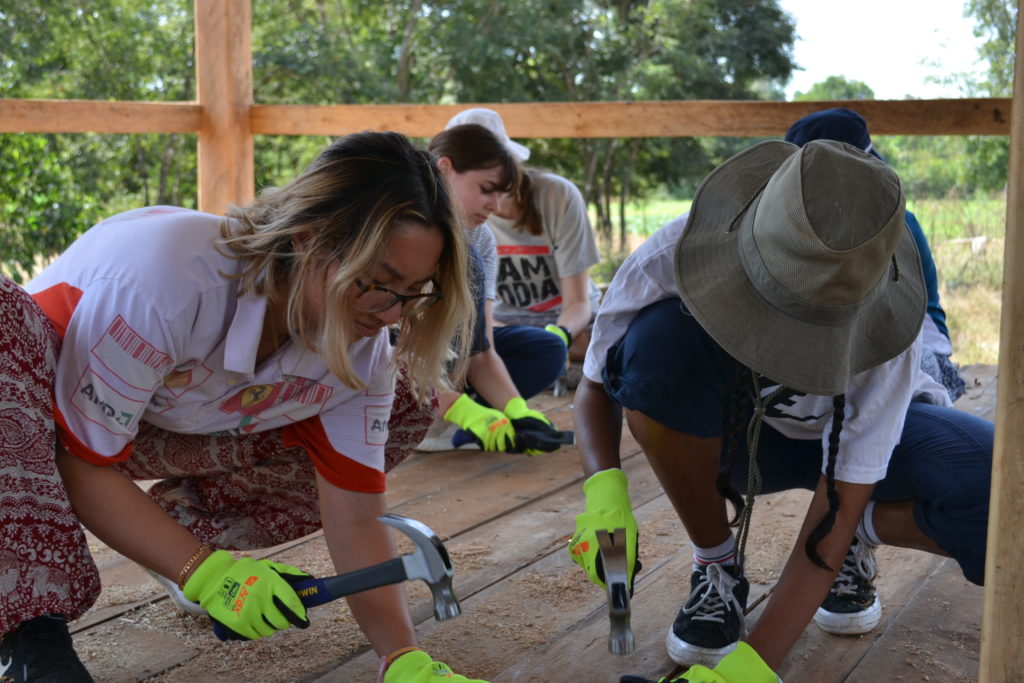
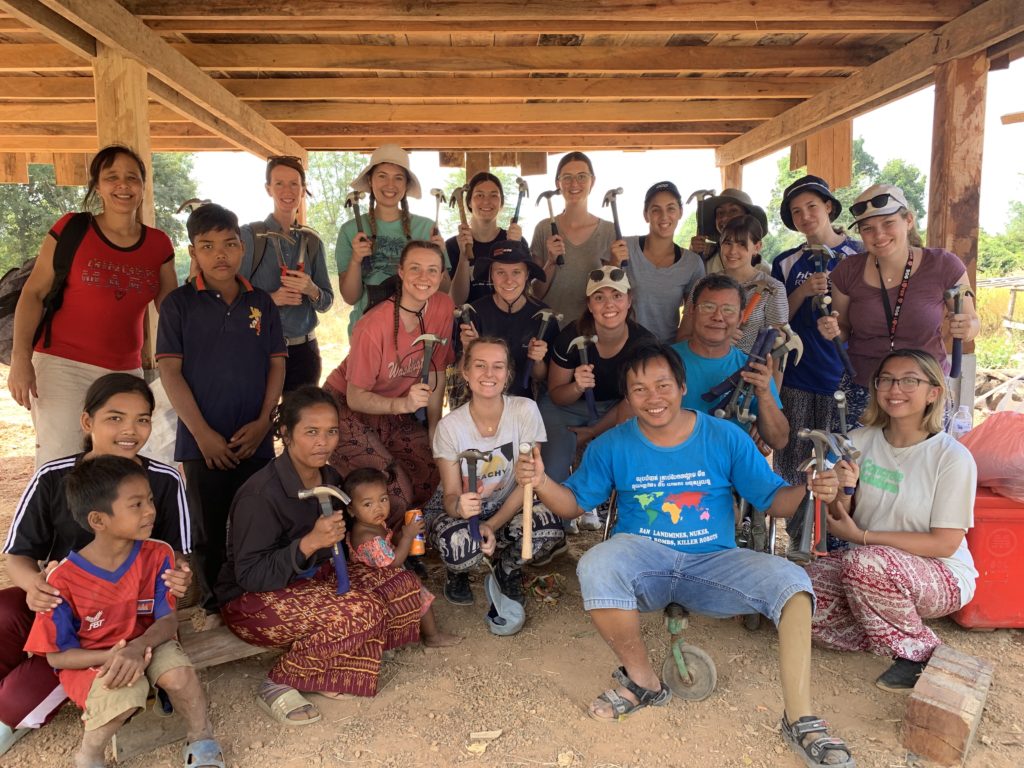
Many Cambodians have been left without adequate housing, and often have more than five people living in a place, too small. To assist in alleviating at least one family’s struggle, we had the privilege of building them a house, using materials funded by our College, as well as a toilet block for a small village. However, this project was not as simple as just finding land and erecting a house.
Cambodia still has over 2 million uncleared and active landmines, meaning 20% of its land is still gravely dangerous. This meant the house had to be built on land that had been completely cleared and deemed safe. The wildlife, especially snakes, can also become a large threat to families without adequate access to healthcare, which is the reason all houses must be built on stilts to provide a layer of safety for the families.
We were extremely humbled by the opportunity to provide emergency food packages to three families who were down to their last meal. The village chief approached our teachers asking if we could assist three destitute families. The tears of gratitude from one mother after receiving emergency food supplies for her starving family is a memory that will remain with us forever.
Additionally, we had the opportunity to visit three different schools and facilitate activities for the children, in and outside the classroom. The juxtaposition between what we know as school and their educational situation was overwhelming. We struggled to make sense of the situations most of them are facing, and yet they showed extreme happiness and joy at school and the possibility of learning in general. For most children, Year 6 was the final year of their education. How ungrateful we can be at the best of times, and yet we are afforded one of the best educational opportunities in Western Australia. Whereas we sometimes drag our feet to class or long for the end of the school day, for these students, every moment spent at school is a gift to be treasured.
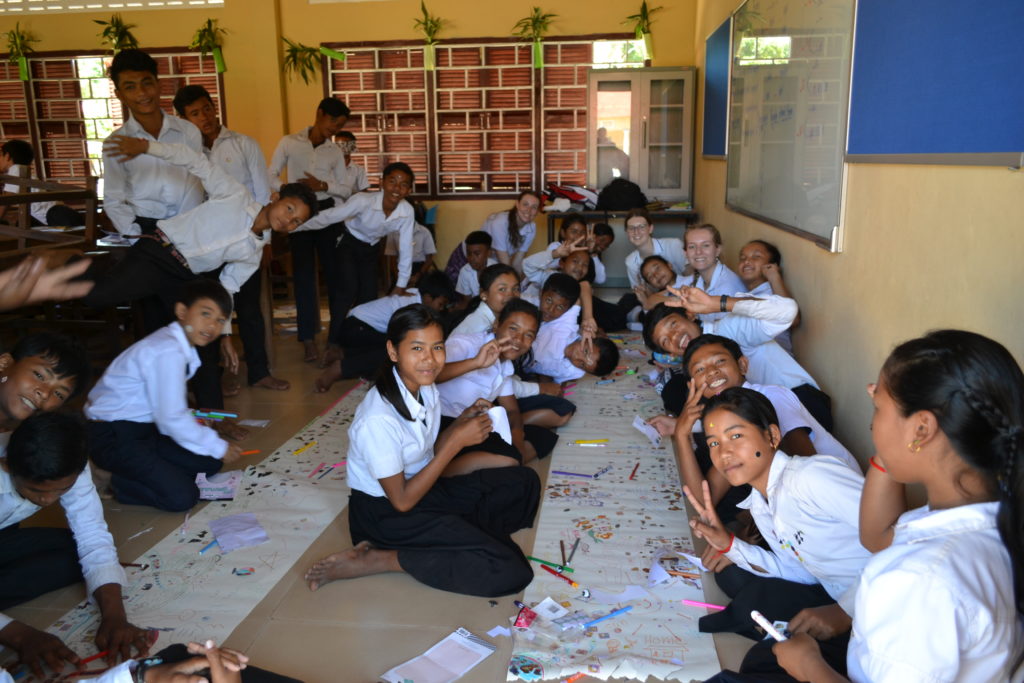
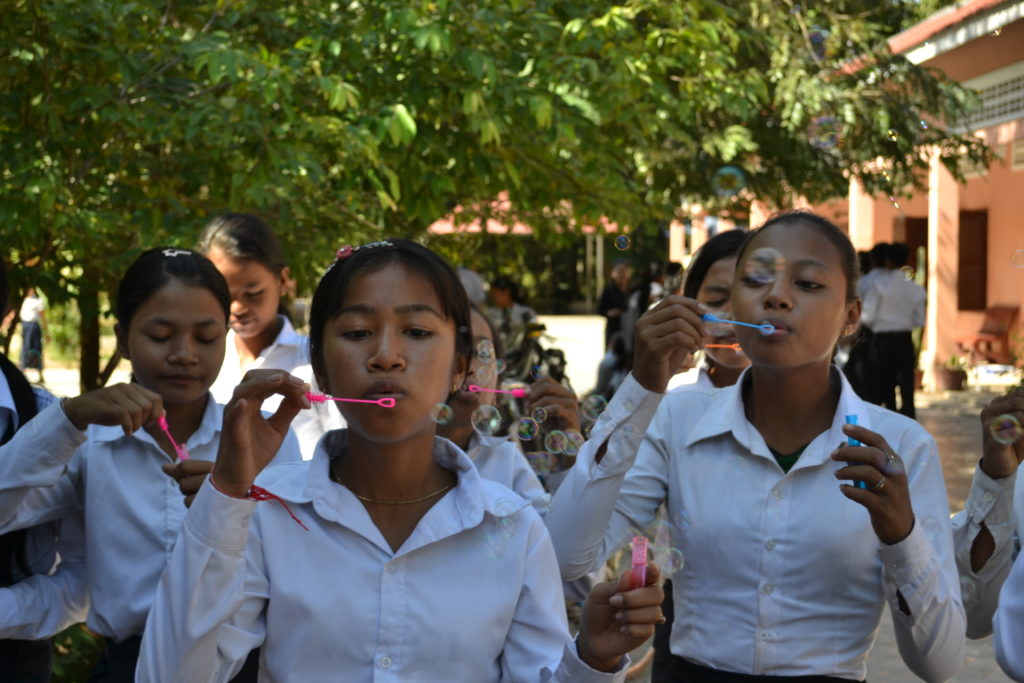
In Siem Reap, we got to meet girls our age who had been given scholarships to attend high school and university. They would not have had this chance otherwise. Most students leave school at the conclusion of Year 6 so they can work for the family.
As we celebrate the academic achievements of our graduating class, while we each aim for a specific ATAR ranking or a Certificate of Excellence, simply learning and having the opportunity of continuing their education is the greatest achievement for many Cambodian children. There is no measure for how valuable their schooling is, as it gives them the potential to free themselves and their nation from the cycle of poverty.
Nothing could have prepared us for our visit to the Killing Fields and the S21 Prison. It was hard to process how people were capable of such cruelty to those of their own country. The visit to these harrowing places left us questioning how a whole nation was almost annihilated, while the perpetrators of the injustice are still not held accountable.
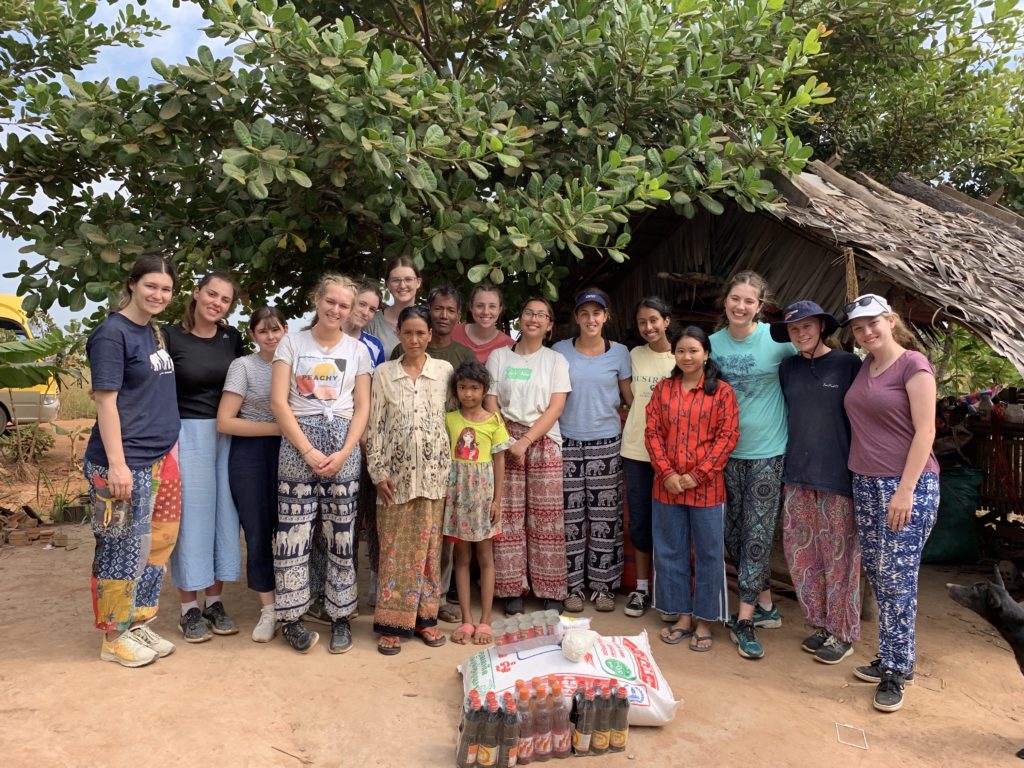
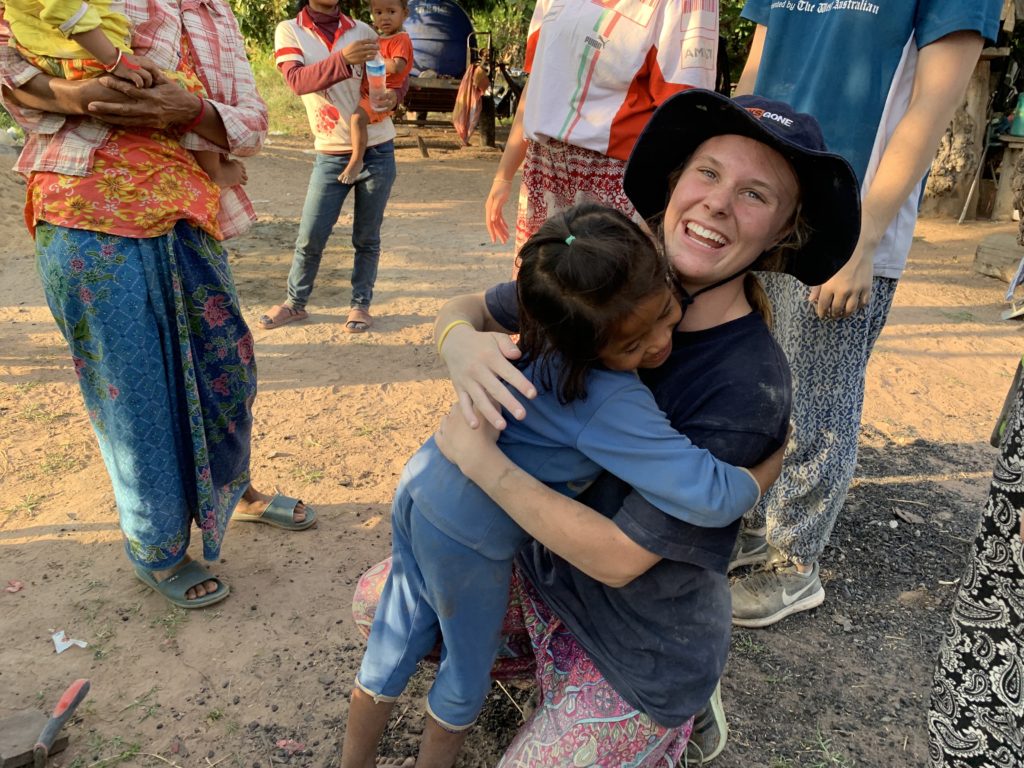
Our trip allowed us to connect with many diverse Cambodian people, all who gave us so much of themselves because they had nothing else to give. This brought home the notion that being truly present with a person is the greatest gift one can give. Our tour guide told us that often, people will be nice to you if you give them something in return, whereas Cambodians will be nice to you no matter what. This is exactly what we experienced every day, in every situation.
Despite the complete contrast between our lives and theirs, we met people who welcomed us and looked after us, as if we were one of their own.
Our Cambodian experience was not like watching a documentary or seeing a series of photos. When you’re immersed in the culture, you can’t just edit out the bits that you don’t want to see. You can’t simply put a filter over your experience like a photo and make everything seem fine.
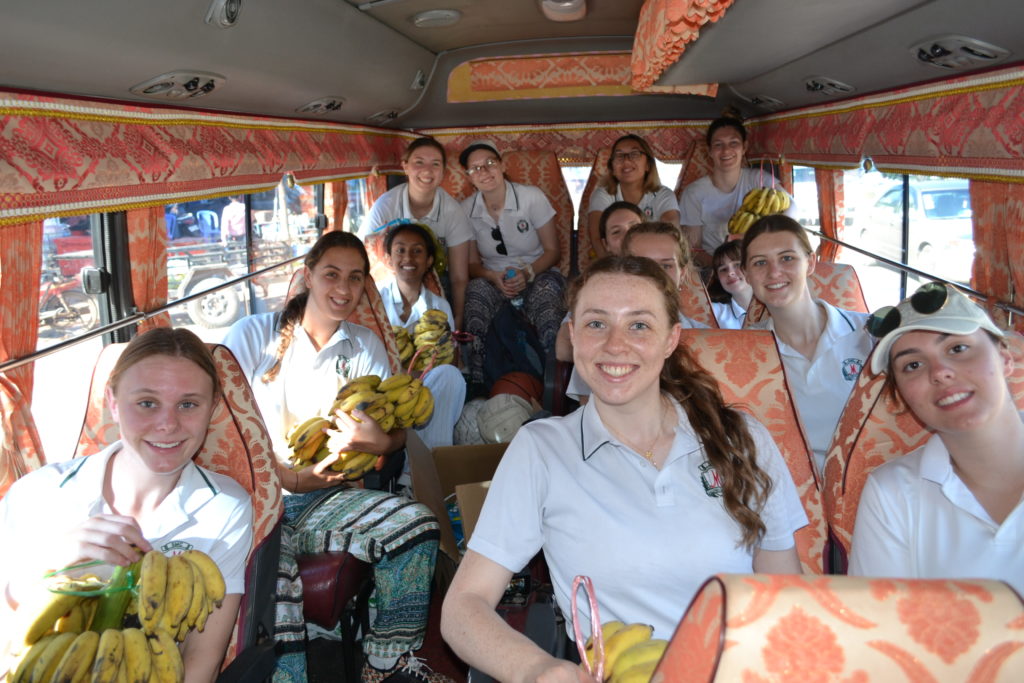
In Australia, we often close our eyes to key issues like homelessness and poverty, which our society allows us to do. Being fully immersed in the Cambodian culture, however, meant that we really had to stare these issues in the face, as they were so prevalent that you couldn’t just look away.
We come from a place of such privilege and so must continue to work for an improvement in their quality of life. We cannot simply let Cambodia’s people be when each of us has the tools to initiate a change no matter how small. If we can only make a difference in a small number of lives, we will have done so much more than we could ever imagine.
Now that we are home, we still feel the need to hold ourselves accountable for what we saw and felt whilst away. This wasn’t a holiday, instead, it was a rich and sobering learning experience. We couldn’t solve every issue as they confronted us, but from this immersion experience, we now have a platform from which the 2019 Cambodian group, past groups, and future immersion groups can build on, and continue to make a change.
Shay Bastiani and Bridget Davis, Class of 2019 Graduates
Let us be the change we want to see in the world.
Mahatma Gandhi
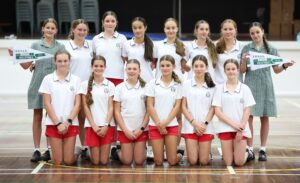
Santa Maria Teams Shine in Term 1 Sports
Santa Maria had a huge number of girls in the IGSSA AFL and Volleyball competition with strong results for a number of teams.
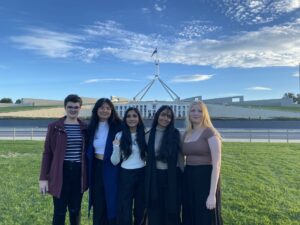
Lee-Elle’s Insights from the ‘Make it 16’ Forum
Lee-Elle Cooper is a passionate Year 12 student who advocates for youth engagement and political participation. She has recently returned from the Make It 16 Forum in Canberra.

With Laurissa Knowles From Valley Depths to Mountain Peaks (1993)
Laurissa Knowles (1993) has had an incredible career journey so far, from Santa Maria College Teacher to Celebrant and Councillor.
- Collaboration, ConnectingLearning2Life, Featured, Stewardship
Author: Santa Maria College
Santa Maria College is a vibrant girls school with a growing local presence and reputation. Our Mission is to educate young Mercy women who act with courage and compassion to enrich our world. Santa Maria College is located in Attadale in Western Australia, 16 km from the Perth CBD. We offer a Catholic education for girls in Years 5 – 12 and have 1300 students, including 152 boarders.







